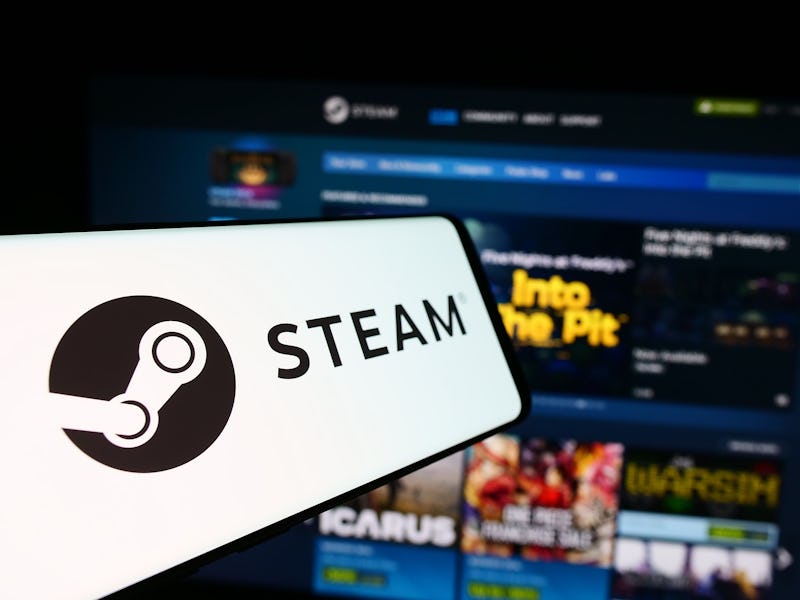Steam’s Personal Calendar Makes It Way Easier To Stay On Top Of New PC Games
Wishlists just became a lot more useful, too.

If you play games on PC, you’re probably well acquainted with Steam already, which means you may also have a handle on some of its biggest limitations. Steam is by far the most popular digital storefront for PC games, and while that makes it a near-guarantee that most games you’re looking for will be available there, it can also be a nightmare to navigate and find new titles that actually match your interests. Over the years, Steam has added a handful of different tools to sort and display games based on individual users’ taste, but a new feature added this week is already shaping up to be the best one yet.
Steam’s latest addition is a simple one: a calendar of new releases coming to the platform. Anyone who follows new games closely likely already keeps track of upcoming titles in a similar way to prevent the constant deluge of new releases from letting them forget about the ones they really want. But while a hand-curated calendar of games is a great way to stay on top of the ones you absolutely don’t want to miss, the Steam Personal Calendar has the advantages of updating automatically and doubling as a tool to discover new games.
Steam’s new calendar makes wishlists way more useful for keeping track of upcoming and recently released games.
At its most basic level, the personal calendar is a good way to keep track of games already on your wishlist. Anything you’ve saved there will be added to the release calendar by default, so you don’t need to bother noting down its release date and keep track of any delays, which are starting to seem like an inevitability for most games these days. Since Steams’ wishlists currently offer very little by way of categorization, they can become something of a black hole — toss some games in there and you’ll most likely never see them again. But just a quick look at my own calendar immediately reminded me that a handful of games I’d been waiting for were actually released last month or are about to be, and I’m now looking forward to finally playing Lock and Key this weekend and Jitter in a couple of weeks, for example.
Beyond tracking games you’re already interested in, the calendar looks like one of the better ways to find new upcoming games on Steam. Along with items from your wishlist, the calendar adds recommendations of games Steam’s algorithm has determined you might like. It does this by checking which games you’ve played the longest recently, and recommending games that players with similar playtimes have added to their wishlists.
Steam’s new calendar presents a streamlined view of upcoming games you might be interested in.
It’s an imperfect system, of course, especially since there’s no accounting for why people add games to their wishlists. But, as Valve points out, it does mean that spending a couple of minutes on dozens of demos during Next Fest isn’t going to irreparably wreck your calendar. If you’re using the calendar for discovery rather than tracking games you already know about, there’s also a helpful option to display up to 500 games, as opposed to the default 100, so you can start seeing some real outliers. My own calendar is a bit of a strange example here, since a lot of my playtime is spent on games I’m playing for work rather than fun, but expanding to the 500-games option has already yielded a few surprises, like the tabletop-inspired Weird West RPG Broke Signal Badlands, which is now on my wishlist.
Maybe the last thing you need is even more games to play, as seemingly every week brings more interesting releases than one person could reasonably stay on top of as it is. But in just a couple of days, the Steam Personal Calendar is already looking like one of the best things Valve has ever done to make its overflowing storefront more manageable. Between Steam’s massive catalog and frequent game delays, any tool to make it easier to cut through the noise and just see a reasonable number of recommendations or filter by date without putting in a ton of work on your own is a huge improvement.